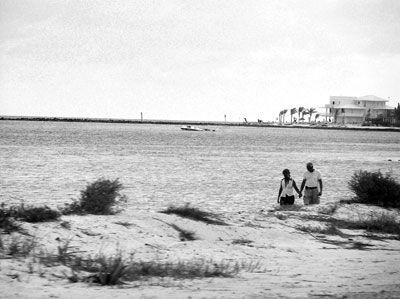All Nonfiction
- Bullying
- Books
- Academic
- Author Interviews
- Celebrity interviews
- College Articles
- College Essays
- Educator of the Year
- Heroes
- Interviews
- Memoir
- Personal Experience
- Sports
- Travel & Culture
All Opinions
- Bullying
- Current Events / Politics
- Discrimination
- Drugs / Alcohol / Smoking
- Entertainment / Celebrities
- Environment
- Love / Relationships
- Movies / Music / TV
- Pop Culture / Trends
- School / College
- Social Issues / Civics
- Spirituality / Religion
- Sports / Hobbies
All Hot Topics
- Bullying
- Community Service
- Environment
- Health
- Letters to the Editor
- Pride & Prejudice
- What Matters
- Back
Summer Guide
- Program Links
- Program Reviews
- Back
College Guide
- College Links
- College Reviews
- College Essays
- College Articles
- Back
Bananas and Grandpas
100 Years of Solitude by Gabriel Garcia Marquez, depicts the Buendia family's ordeals in Macondo. Marquez's use of fantastical elements in his realistic writing led to the creation of magic realism. Like many other authors, Marquez was inspired by as from his own life and other people. The events and writing style of 100 Years were both inspired from facets of Marquez's life, including the banana plantations and his grandparents.
Macondo, the fictional town where the events of 100 Years take place, can be compared with Marquez's hometown of Aracataca. In fact, Marquez named Macondo after a banana plantation that he encountered near his hometown. A Columbian native, Marquez knew about the negative aspects of banana planatations. "The banana plague" (Marquez 229) is first expressed as a positive change in the development of Macondo. However, in reality, the advent of the banana plantations was bad news for Macondo. For example, the Banana Massacre in Colombia resulted in the deaths and oppression of banana plantation workers. The incident was nearly wiped out from the history books, but it was revitalized by Marquez's 100 Years of Solitude. The banana plantations in both Marquez's life and the novel, represent disturbances in the lives of the people. The quotation "they had already caused a colossal disturbance..." (Marquez 227) shows the narrator's view that the foreigners changed Macondo. He implies that the changes are negative and that they will disrupt the once peaceful lives of the Macondo villagers. And indeed, he is right. All the new banana plantation workers disrupted the once peaceful Macondo, and the ensuing massacre contributed to the town's ultimate demise.
While he lived in Aracataca, Marquez was heavily influenced by his grandparents. However, both his grandfather and grandmother influenced him in different ways. Marquez's grandfather, Colonel Nicolas Ricardo Marquez Mejia. Based on several implications, Marquez's grandfather is likely a direct parallel to Jose Arcadio Buendia and Colonel Aureliano Buendia. Both Nicolas and Aureliano were Liberal colonels, while both Nicolas and Arcadio played pivotal roles in the founding of Aracataca and Macondo respectively. These similarities signify the importance of Marquez's grandfather in his life. Colonel Nicolas was the person who introduced Marquez to ice, which directly correlates to when Colonel Aureliano Buendia's father "took him to discover ice" (Marquez 1). He also once killed someone in a duel, similar to how Jose Arcadio killed Aguilar after Aguilar insulted both him and Ursula. The line, "You go home and get a weapon, because I'm going to kill you," (Marquez 21) showcases Buendia's determination. This strong will is similar to that of Nicolas, who was a veteran of the War of a Thousand Days, a civil war in Colombia. Marquez borrowed many of Nicolas' experiences and translated them into his writing.
While Nicolas was an influential figure in Marquez's life, his grandmother, Dona Tranquilina Iguaran, influenced Marquez's writing style. According to Marquez's interview, the time that he spent "listening to their [his grandparents'] nonstop stories, superstitions, and folk beliefs," (Marquez P.S. 3), had a huge impact on his storytelling. Marquez wrote in the same way that his grandparents recounted stories to him; he wrote so that unbelievable events seemed real. This style of writing, which was later classified as magic realism, was prevalent throughout 100 Years. One instant of magic realism, the rain that lasted for approximately five years (Marquez 315), shows a strange happening upon Macondo immediately after the banana massacre. Though it is highly unlikely that it rained for this long, Marquez is utilizing magic realism in this case to show the readers that the entire incident of the banana massacre was perplexing. How did the Columbian government manage to murder plantation workers and almost get away with it? The unnatural lasting of the rain implies that the circumstances of the Banana Massacre were strange. The Banana Massacre was an important event to Marquez, and thus, he included it in 100 Years of Solitude.
Marquez's experiences and views all culminated in the form of 100 Years of Solitude. His grandparents affected Marquez's views and literary style, which he demonstrated with the banana plantations and magic realism in 100 Years of Solitude. The town of Aracataca and even Colombia played significant roles in the writing of the novel. They provided the context of the events that occurred in 100 Years, while Marquez's grandparents provided the unique means to convey them.

Similar Articles
JOIN THE DISCUSSION
This article has 0 comments.
